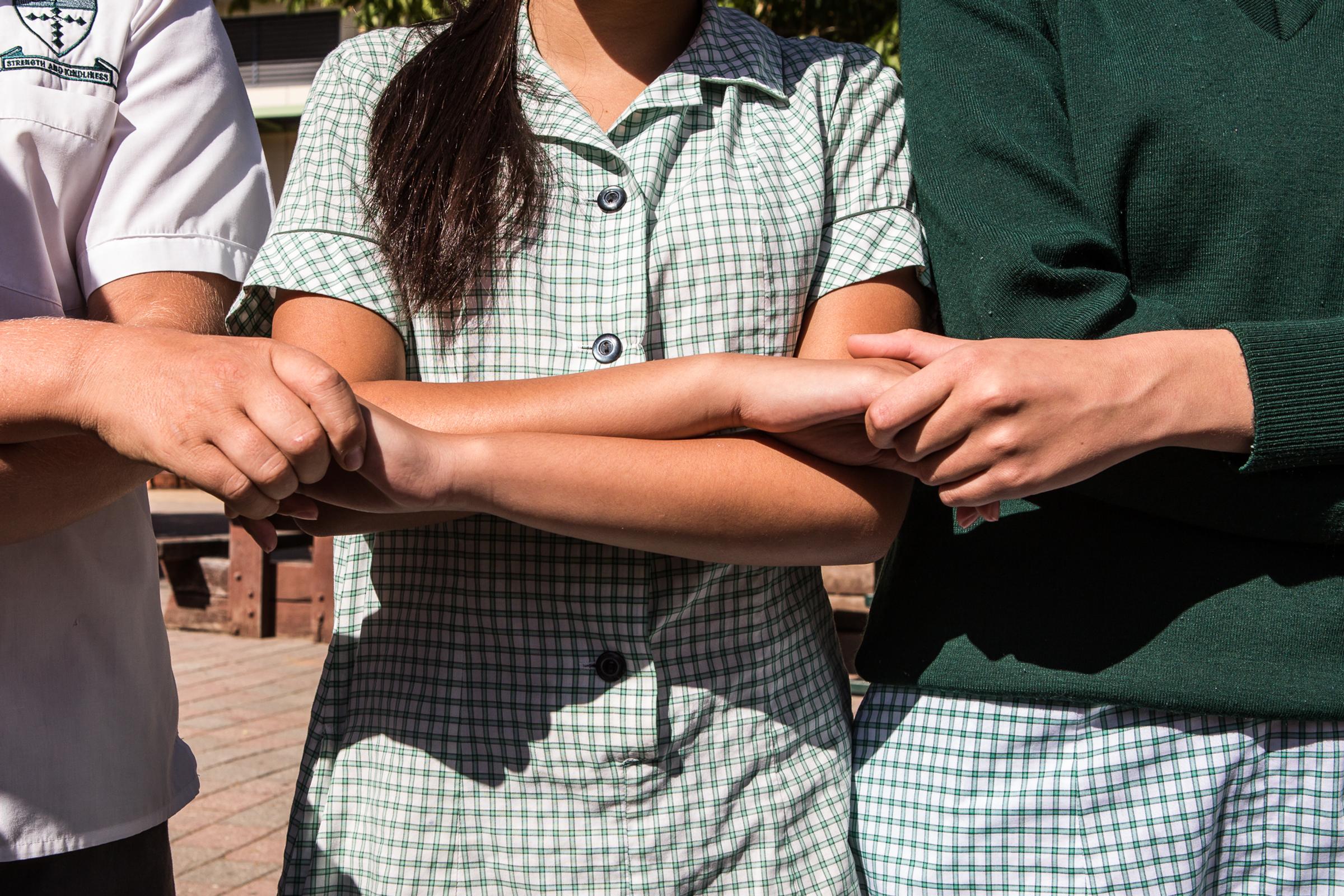Pastoral Care and Wellbeing

Gratitude
Research tells us that practising gratitude encourages more positive feelings and emotions. It tends to assist us in feeling more appreciative and happy, and overall improve our wellbeing. We encourage you to make gratitude a focus of your conversations with your students, the more specific, the better! There are a number of online resources and different ways to document gratitude, such as a journal, or writing 3 things you are grateful for each day.
Give it a try!
Vaping Concerns
It has come to our attention that vaping is becoming more prominent and widespread in our community. Smoking/vaping devices are illegal on school grounds, but further to this, pose significant health and safety concerns. Vaping devices are often marketed towards a younger market by incorporating a variety of flavours, colours and ingredients.
We encourage you to please discuss this with your student and ensure they understand the risks and legalities involved. We encourage people to speak out about behaviours and actions that are not in line with our values and expectations.
Please check out the following information and resources on our SchoolTV:
https://sje.vic.schooltv.me/wellbeing_news/special-report-vaping-au
Social Media and Digital Reputation Special Report: SchoolTV
Social media has become such an integral part of a teenager’s life that it can cause anxiety and lower their self-esteem. Modern teens are learning to do most of their communication whilst looking at a screen instead of another person. They are missing out on very critical social skills.
And dependant on what they are communicating online, it can affect their digital reputation. Friendships, relationships and even future job prospects are all at risk. As a parent, It is very important that you are aware of what picture they are painting of themselves online.
Once information makes its way online it can be difficult to remove. Images and words can be misinterpreted and altered as they are easily and quickly shared around. Privacy settings on social media sites need to be managed in order to protect your child’s digital reputation.
Our SWPBS (School Wide Positive Behaviour Support) Framework Matrix highlights P.A.U.S.E before you post - is what you are posting Positive, Accurate, Useful, Supportive, Ethical?
Please discuss this and rules and guidelines to support your students’ use of social media and the impact of messages to others. Explain the positive uses and the importance of curating what we are seeing on social media.
You can find a special report and further information using our SchoolTV. We also encourage you to explore the eSafety Commissioner (www.esafety.gov.au) and the resources and information available here with your student.
https://sje.vic.schooltv.me/newsletter/social-media-and-digital-reputation
If we can assist further in any way, please contact wellbeing@sje.vic.edu.au
Rach Chapman
College Leader - Pastoral Care and Wellbeing and The Wellbeing Team
Beating the Winter Blues
Feeling a little sadder than normal? Lacking motivation or having some trouble sleeping? You might be experiencing “The Winter Blues.”
People feel sad sometimes and that is perfectly normal. Afterall, we are human and we experience a vast array of emotions consistent as such. It is unrealistic to expect to only experience happiness.
Without exploring the statistics, I think we could safely say we are experiencing a wetter, gloomier winter than we have in recent years. Throw in intermittent snap lockdowns and travel restrictions and this winter might be considered more challenging than those in recent history which, in turn, may have the potential to negatively impact social/emotional wellbeing.
Here are some tips on maintaining or improving your social/emotional health during the winter months:
Take a Break from the News
Whilst it’s great to remain up to date with current affairs, the news can often provoke stress, sadness and even a sense of despair. It might be a good idea to limit the amount of time you spend in front of the screen by scheduling a set amount of time (no more than an hour) for news.
Consider the Food You Are Consuming
Foods high in sugar and carbohydrate can leave you feeling flat and lethargic. Try and resist these cravings and opt instead for high protein foods. Foods high in vitamin D can help balance moods. Research has suggested that people with low levels of vitamin D are at greater risk of depression. Try to squeeze in some fish, fish oil, dairy, vitamin D fortified cereals as well as sufficient fruit and vegetables. When it comes to fresh vegetables, “the more colours the better.”
Maintain a sleep routine
It goes without saying that sleep can affect our mood. Some tips to maintain a healthy sleep routine include;
- going to bed and waking up at a consistent time each day,
- following a nightly pre bedtime routine such as warm shower or bath, reading a book or enjoying a warm drink (no caffeine).
- Expose yourself to light and stretch when you wake.
- Limit the use of electronics in bed.
- Practice prayer or meditation
Get out; get some exercise, enjoy the sun and see friends
It’s important not to isolate yourself. Make sure you are staying social, spending time with friends and family, making time for exercise and enjoying any sunlight that is available.
Physical activity can boost your mood. And it’s important to incorporate this into your daily routine.
Seek professional advice if lifestyle modifications are not helping.
If lifestyle interventions like those listed above are not providing enough relief, it may be time to schedule an appointment with your doctor or mental health expert
If you have questions, please contact wellbeing@sje.vic.edu.au
Reference: https://www.verywellmind.com/
